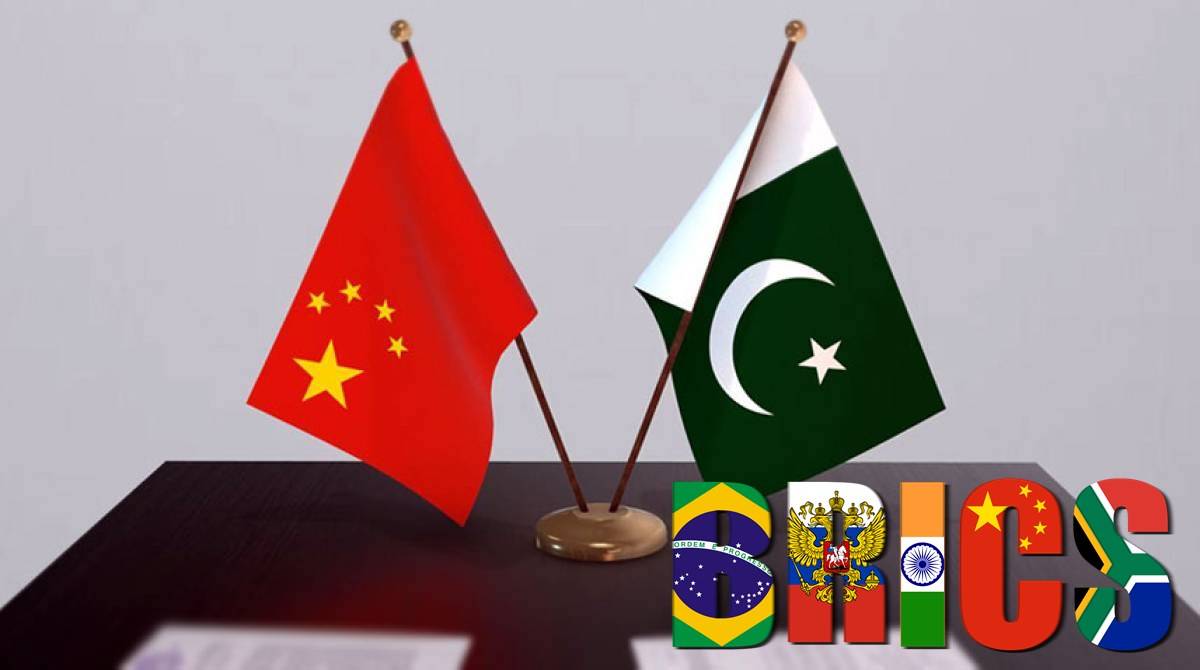In a bold move that could reshape the dynamics of international alliances, China has extended a fervent invitation to Pakistan to join the BRICS consortium. This announcement comes as part of Beijing’s strategy to expedite the expansion of the BRICS alliance, aiming to elevate it into a formidable geopolitical competitor to the G-7 group. However, China’s aspirations have met opposition from India, a founding member of BRICS, leading to a clash of interests that could redefine global power alignments.
China’s Ambitious Bid for BRICS Expansion
China’s diplomatic maneuvering is gaining momentum as it seeks to fast-track Pakistan’s membership in the BRICS alliance. Not stopping at Pakistan, China also envisions the inclusion of Saudi Arabia, Iran, and two other Arab nations into the BRICS fold, a move that could significantly augment the consortium’s global influence. This ambitious bid comes on the heels of a senior Chinese official’s recent expression of interest in transforming BRICS into a potent rival to the G-7.
India’s Reservations and Geopolitical Tensions
While China fervently pushes for BRICS expansion, India, one of the cornerstones of the alliance, stands firmly in opposition. India’s consistent opposition to the broadening of BRICS stems from concerns that it could dilute the core objectives and consensus painstakingly built among the existing members. The tension escalates further as India also sides with Belarus, which is formally seeking entry into the BRICS group.
Pakistan’s Strategic Backing and Global Aspirations
Pakistan, a nation that has shown repeated interest in joining BRICS, now finds a staunch supporter in China. As Beijing’s strategic partner, Islamabad’s aspirations to join the consortium gain a substantial boost. Pakistan’s desire to become a part of BRICS aligns with its vision of enhancing its global presence and collaborating with other developing nations. Alongside Pakistan, countries like Turkey and Saudi Arabia have also expressed their eagerness to join the alliance, with discussions slated for the upcoming BRICS summit in South Africa.
Pakistan, backed by China’s strategic partnership, sees an opportune moment to fulfill its longstanding aspiration of joining BRICS. The alliance, which brings together Brazil, Russia, India, China, and South Africa, encompasses a staggering 41% of the global population and 24% of the global GDP. Pakistan’s desire to be part of this powerful coalition aligns with its global aspirations, even as it accuses unnamed entities, widely believed to be India, of obstructing its participation in recent virtual meetings hosted by Beijing.
With the impending BRICS summit in South Africa, the global stage is set for intense discussions on the expansion of the consortium. As China and India lock horns over the future of BRICS, the outcomes of these negotiations could potentially reshape the contours of global alliances, tipping the scales of power and influence. As the world watches with bated breath, the clash between China’s vision and India’s reservations continues to unfold, with implications that extend far beyond the boundaries of the consortium itself.














